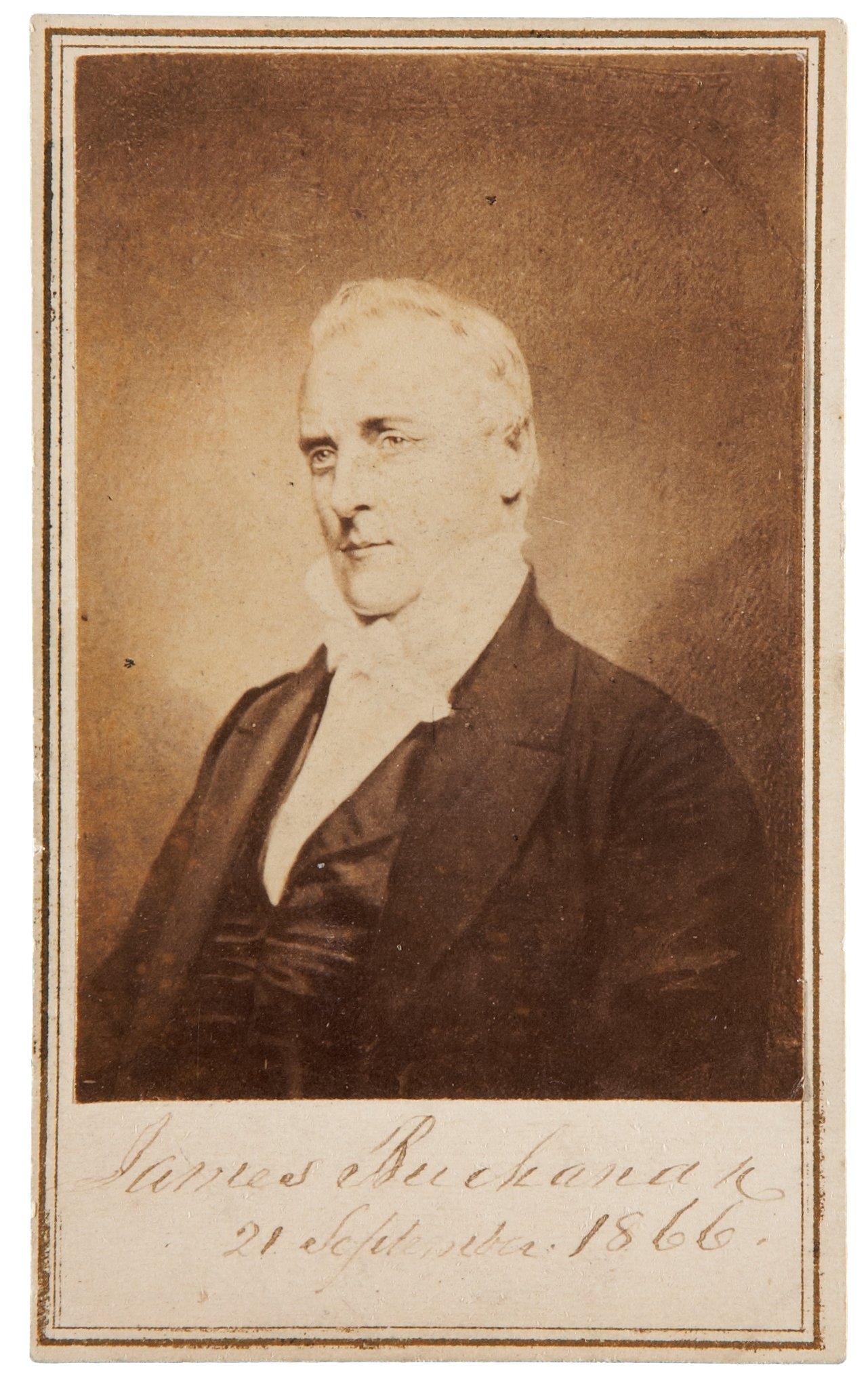
By Jim O’Neal
James Buchanan was elected to the U.S. Senate in 1834 and represented Pennsylvania for 11 years during the administrations of presidents Jackson, Van Buren, Harrison and Tyler. He turned down offers to serve as U.S. attorney general for Van Buren and an appointment to the Supreme Court by Tyler. After campaigning for Polk in the election of 1844, he finally accepted the position of secretary of state, since it seemed like a clear path to the presidency.
This was a bad decision and when he and President Polk could not agree on major issues, Buchanan would complain to a friend, “My life is that of a galley slave.”
Buchanan then failed to win the Democratic nomination in 1848 and 1852, but at the age of 62, was given the post of U.S. Minister to Great Britain. There, he gained unexpected notoriety when he secretly joined with other ministers (Pierre Soulé in Spain and John Mason in France) to draft the infamous “Ostend Manifesto,” which proposed to buy Cuba from Spain. If Spain refused, then “we shall be justified in wresting” the island from its owners … a strong inference of war.
Cuba was especially important to Southern Democrats since it was primarily a plantation-slave economy based on sugar and having it as a state would add two senators and nine members to the House of Representatives. However, anti-slave Northerners were not about to go to war with Spain to add more slave states to the Union and the effort was easily defeated.
At the Democratic National Convention in Cincinnati in June 1856, Buchanan bounced back, winning the nomination and then the election.
Two days after Buchanan was sworn in as president, the Supreme Court handed down the Dred Scott decision, which affirmed the right of slave owners to take their slaves into Western territories. This bolstered Buchanan’s belief that slavery was rooted in the Constitution and could not be legislated out of existence; it was an issue for each state to decide.
Then came the Panic of 1857, which was caused by the failure of Ohio Life Insurance Company of Cincinnati. The sudden demise of a once-solid institution touched off a wave of bank runs across the nation that plunged the nation into a deep economic depression. Many railroads failed due to over-expansion as did many state banks that were operating under flimsy regulations. The only areas that were unaffected were the cotton-growers exporting to England (and they needed more slaves to expand production).
It was clear that the slavery issue would lead directly to a civil war and James Buchanan was too inept or unwilling to provide leadership to avoid one. He just assumed the worst and declared that he “would be the last president of a United States.”
Fortunately, he was wrong, but it would take four long years and 620,000 dead Americans to prevent it.
 Intelligent Collector blogger JIM O’NEAL is an avid collector and history buff. He is President and CEO of Frito-Lay International [retired] and earlier served as Chairman and CEO of PepsiCo Restaurants International [KFC Pizza Hut and Taco Bell].
Intelligent Collector blogger JIM O’NEAL is an avid collector and history buff. He is President and CEO of Frito-Lay International [retired] and earlier served as Chairman and CEO of PepsiCo Restaurants International [KFC Pizza Hut and Taco Bell].
